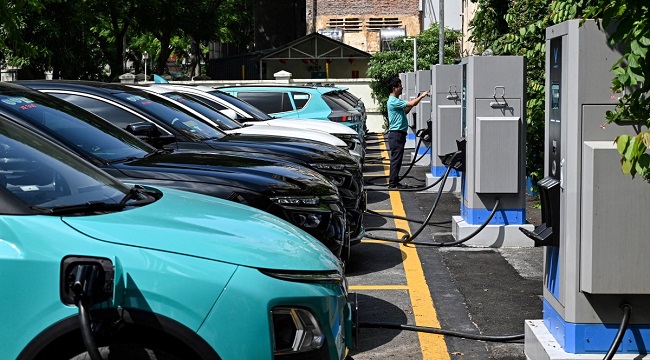The Directorate of Road Traffic Services (DRTS) has unveiled plans to deploy Artificial Intelligence (AI) at various road intersections in the Federal Capital Territory (FCT) to optimize traffic flow. Kalu Emetu, the Head of Public Relations and Enlightenment at DRTS, revealed this development in an exclusive interview with the News Agency of Nigeria in Abuja.
Emetu emphasized the necessity of integrating AI technology to supplement the efforts of traffic personnel, particularly amidst the escalating congestion within the city center. He highlighted that the implementation of AI has been pending, awaiting the finalization of arrangements with the agency’s partners.
He underlined the primary objective of utilizing AI as a means to ensure compliance with traffic regulations and facilitate seamless movement of vehicles. Emetu affirmed that the introduction of AI would revolutionize the monitoring of traffic, ultimately contributing to the reduction of congestion and maintenance of orderly conduct on the roads.
Furthermore, Emetu announced that traffic violators would be subjected to fines for infractions, including those observed during the trial phase of the AI system. The spokesperson emphasized the readiness of the system, citing the operational recording around the designated areas.
Regarding the technical aspects, Emetu expressed urgency for the project’s commencement, referencing the collaboration with partner companies, Huawei and Chit-Up. He projected an imminent operationalization, thereby streamlining the interaction between traffic personnel and motorists.
Moreover, he accentuated the confidence that motorists would garner from the integration of advanced technology, diminishing the prevalent reliance on personnel intervention. Emetu explained that the AI system would facilitate automated identification of violators, subsequently notifying them via text messages with details of the incurred fines.
In alignment with recent advancements, he elucidated the incorporation of e-booking and e-ticketing systems, which would streamline the payment process for fines, eliminating ambiguity and ensuring transparent transactions.
Emetu concluded by emphasizing the transparency and accountability of the payment mechanisms, assuring motorists that the imposed fines would be seamlessly directed to the appropriate government channels, providing clarity and accountability in the entire process.



